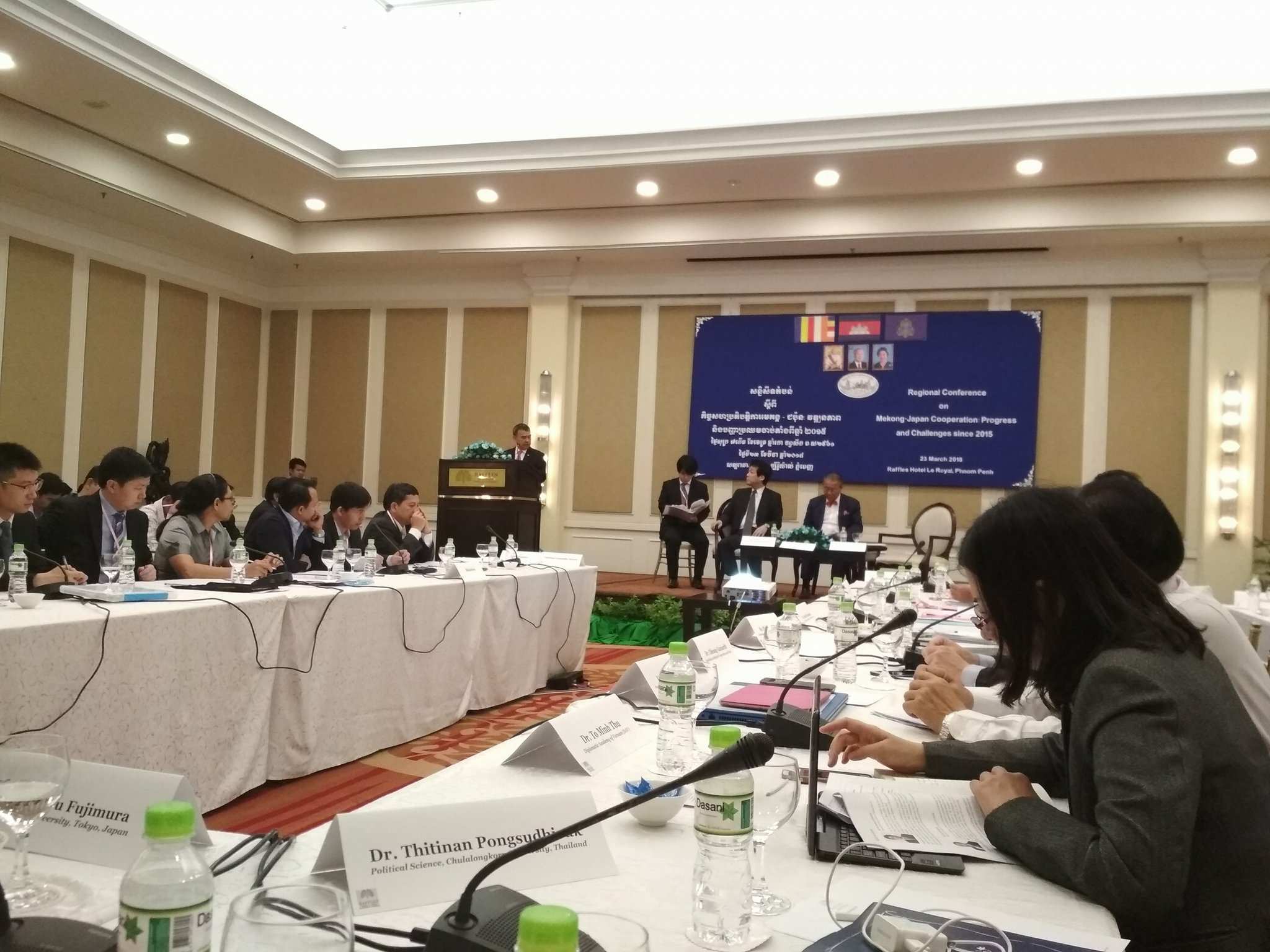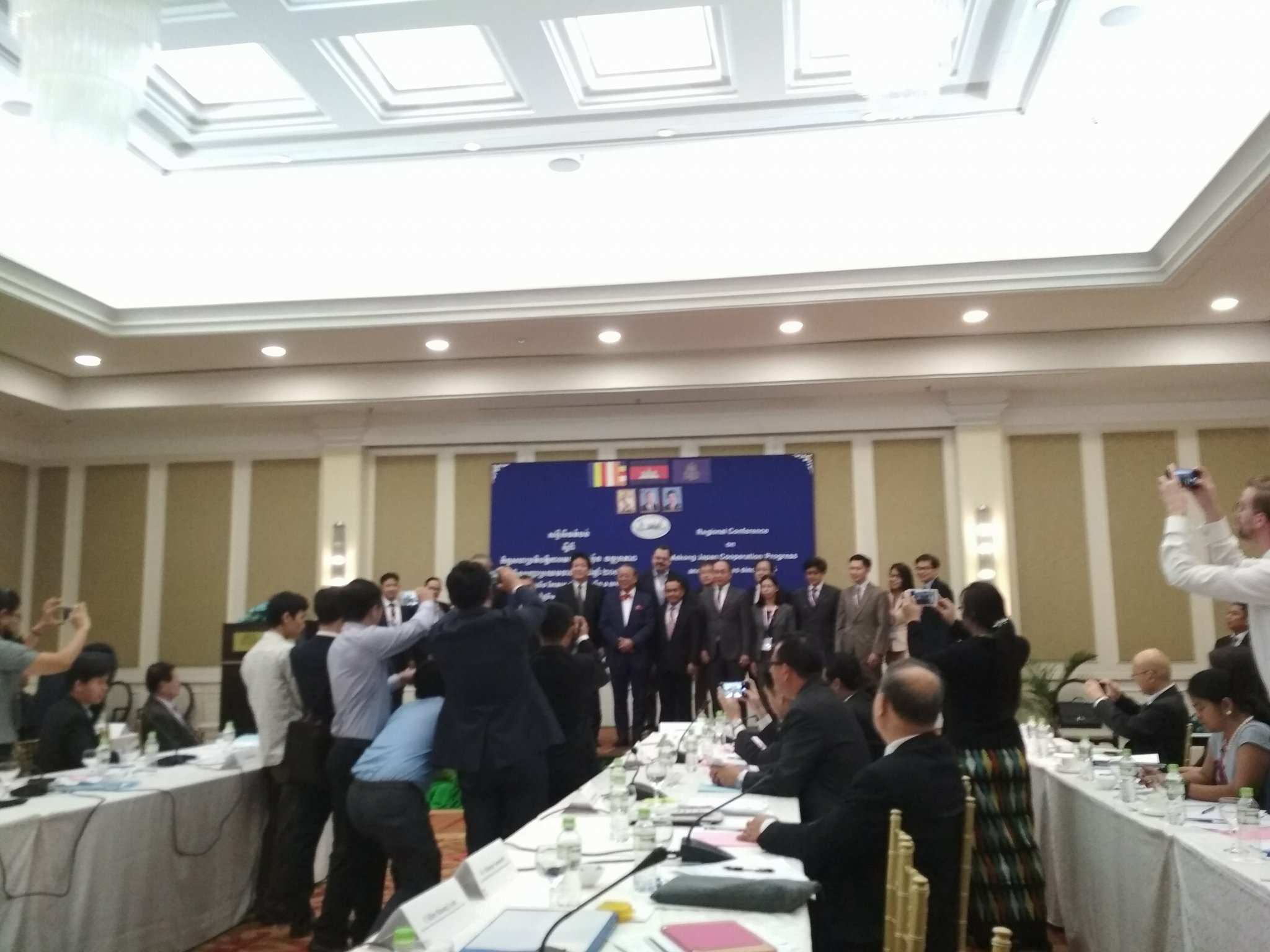ODC team participated in the Regional Conference on Mekong-Japan Cooperation: Progress and Challenges since 2015
Organised by the Cambodian Institute for Cooperation and Peace, the conference on the topic of regional cooperation in the Mekong region took place at the Raffles Hotel Le Royal in Phnom Penh on the 23rd of March. In his welcoming remarks, H.E. Ambassador Pou Sothirak, the Executive Director of Cambodian institute for Cooperation and Peace, highlighted the significant contribution of Japan as a key investor in the regional development. In his reciprocal address, H.E. Ambassador Kentaro Sonoura, Special Advisor to the Prime Minister of Japan and a member of the House of Representatives from Liberal Democratic Party of Japan, commented on the significant progress that the countries of the region achieved in the recent years. As it was noted, since 2015 the New Tokyo strategy has been constructed around four key pillars: ‘Hard Efforts’ (focusing on industrial connectivity on land, at sea, and in the air), ‘Soft Efforts’ (focusing on developing human capital in the region), ‘Green Mekong’ (emphasizing sustainability in the region), and extended state-to-state coordination among stakeholders. This statement was further elaborated by H.E. Dr. Sok Siphana, Advisor to the Royal Government of Cambodia, who mentioned that ‘two thirds of the Japanese government’s commitment of 750 billion yen in Official Development Assistance (ODA) to the Greater Mekong region has already been expended and has positive outcomes in the form of significant improvements to quality infrastructure in the region, including the development of Sihanoukville Port in Cambodia, Yangon-Mandalay railway in Myanmar, and high-speed railway in Thailand’.

H.E. Ambassador Kentaro Sonoura, Special Advisor to the Prime Minister of Japan commented on the significant progress that the countries of the region achieved in the recent years.

Dr. Bradley J. Murg from Seattle Pacific University elaborated on the general patterns of investment processes taking place in the countries.
After the opening session, the conference had three interactive panels with intense discussion based on pertinent sub-themes with the first one commenting on the achievements, ongoing challenges, and future prospects of the ‘New Tokyo Strategy 2015 for Mekong-Japan Cooperation (MJC2015)’. There, such experts as e.g. Prof. Manabu Fujimura from Aoyama Gakuin University of Tokyo represented the key highlights of the recent infrastructure development in the region, whereas Dr. Bradley J. Murg from Seattle Pacific University elaborated on the general patterns of investment processes taking place in the countries. The second session chaired by Ms. Pich Charadine, Assistant to the Executive Director and Senior Fellow of the Cambodian Institute for Cooperation and Peace, represented the perspective views on the potential challenges of specific countries of the region. For instance, Dr. Thitinan Pongsudhirak from Chulalongkorn University, reviewed the challenges faced by Thailand with respect to the regional cooperation, as well as commented on the bilateral cooperation between Thailand and Japan. Finally, the third session summarized the key achievement of the regional cooperation in the past and suggested new steps to improve human development, green development, and hard/soft infrastructure in the countries of the region.

Group photo before ending the conference.


